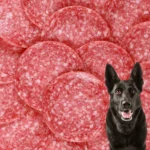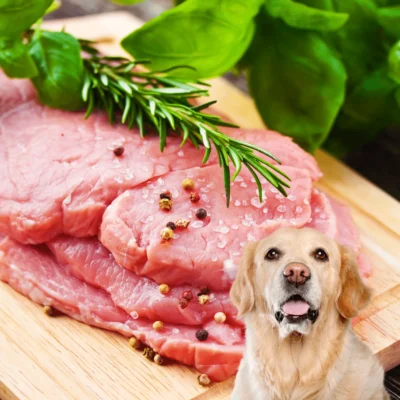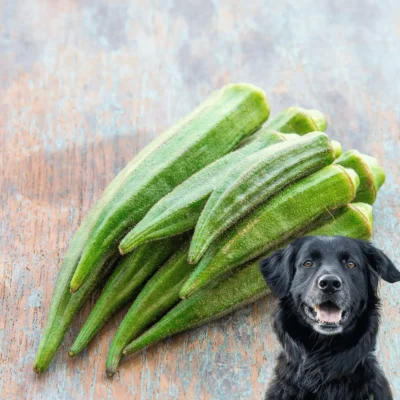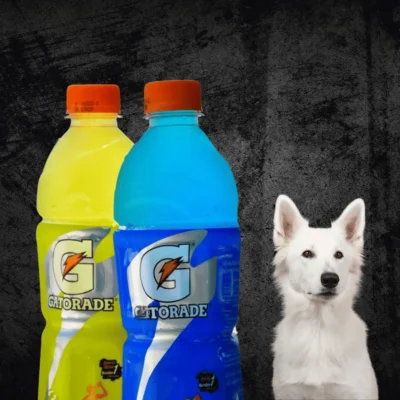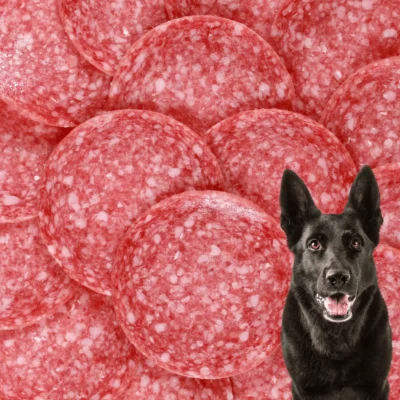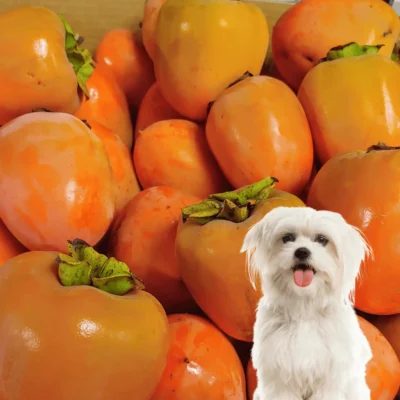For dogs, protein is an essential component of their diet, providing vital amino acids necessary for growth and overall health. This crucial nutrient can be derived from various sources, including animal products like veal or plant-based alternatives. Veal, being a lean meat, offers a rich source of high-quality protein, and its low levels of saturated fats make it a healthy dietary option.
If you usually feed your canine companion chicken, beef, or turkey as their primary protein source, you may be interested in introducing veal into their diet. The good news is that dogs can safely consume veal, and it is often considered easier to digest compared to beef. Join us as we explore the compatibility of veal in your dog’s diet, considering its nutritional facts and potential advantages over other meat options.
Here are the topics we’re going to discuss in this blog:
- What is veal?
- Nutritional facts about veal
- Can dogs safely eat veal?
- Health benefits of veal for dogs
- Risks of feeding veal to dogs
- Can dogs have cooked veal?
- Can dogs eat veal bones?
- How much veal should you incorporate into your dog’s diet?
- What are the alternatives to veal for your dogs?
What is Veal?
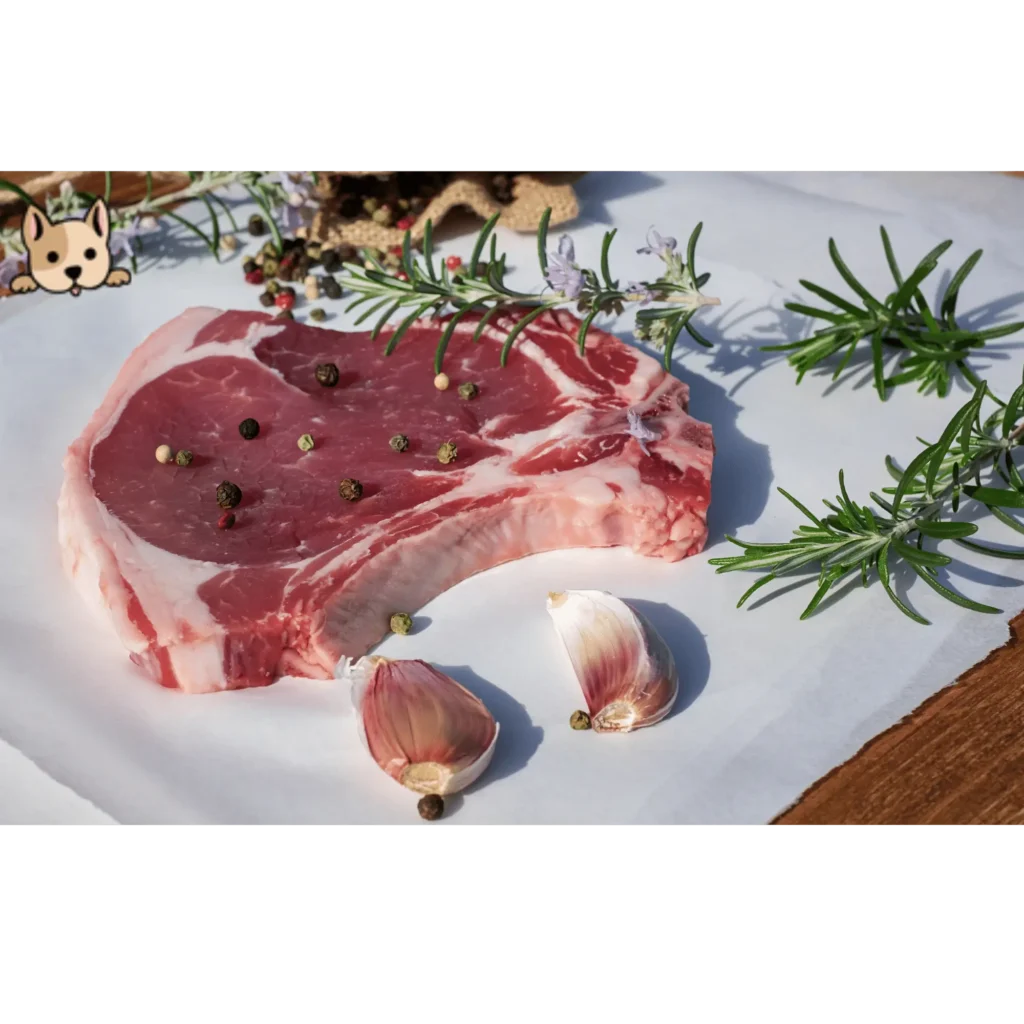
The term “veal” refers to the meat of a younger animal, which can come from a beef breed, a dairy crossbreed, or a dairy breed. Beef-breed calves stay with their moms for a longer time and are separated when they are older.
However, veal, particularly from dairy breed calves (mostly males), are separated from their moms early and raised in special areas. This process helps make the veal tender and tasty, and it’s a bit different from how beef calves are raised.
Calf meat is often lighter in color than beef and has a more subtle taste. It is used in various culinary dishes and cuisines worldwide, ranging from roasts and stews to cutlets and sausages.
Nutritional Facts About Veal:
The nutritional content of veal can vary based on factors such as the cut of meat and cooking methods. Here are approximate values for 3 ounces (85 grams) of cooked, braised veal:
- Calories: Around 150 calories
- Protein: Approximately 25 grams
- Fat: About 5 grams
- Cholesterol: About 120 milligrams
- Sodium: Approximately 70 milligrams
- Vitamin B12: Around 2.99 micrograms (over 80% of the Daily Value)
- Niacin (Vitamin B3): Approximately 8.19 milligrams (about 25% of the Daily Value)
- Vitamin B6: Around 0.4 milligrams (about 20% of the Daily Value)
- Riboflavin (Vitamin B2): Approximately 0.2 milligrams (about 10% of the Daily Value)
- Thiamine (Vitamin B1): Around 0.1 milligrams (about 7% of the Daily Value)
- Iron: Approximately 1.5 milligrams (about 8% of the Daily Value)
- Zinc: Around 4 milligrams (about 30% of the Daily Value)
- Phosphorus: Approximately 200 milligrams (about 20% of the Daily Value)
- Selenium: Around 20 micrograms (about 30% of the Daily Value)
- Sugar: 0 g
- Carbohydrates: 0 g
Can Dogs Safely Eat Veal?
Yes, dogs can safely enjoy veal! Veal meat is generally easier for dogs and cats to digest compared to beef. It serves as a good protein source, providing essential amino acids, zinc, and B vitamins that contribute to overall canine health. However, it’s crucial to be mindful of portion control to prevent overconsumption, as excessive intake of any new protein source can lead to digestive issues or other health concerns.
Choose lean cuts of veal to avoid excessive fat intake, which could contribute to digestive problems and obesity. Thoroughly cook the veal to eliminate any potentially harmful bacteria, avoiding feeding raw or undercooked meat to your dog. Remove bones from the veal before serving to prevent choking hazards or potential intestinal blockages.
Before making significant dietary changes, consult with your veterinarian to ensure that the new addition aligns with your dog’s specific health needs and dietary requirements. Introduce veal gradually, monitoring your dog for any signs of allergies or sensitivities. If adverse reactions are observed, discontinue veal feeding and seek advice from your veterinarian.
Health Benefits of Veal for Dogs:
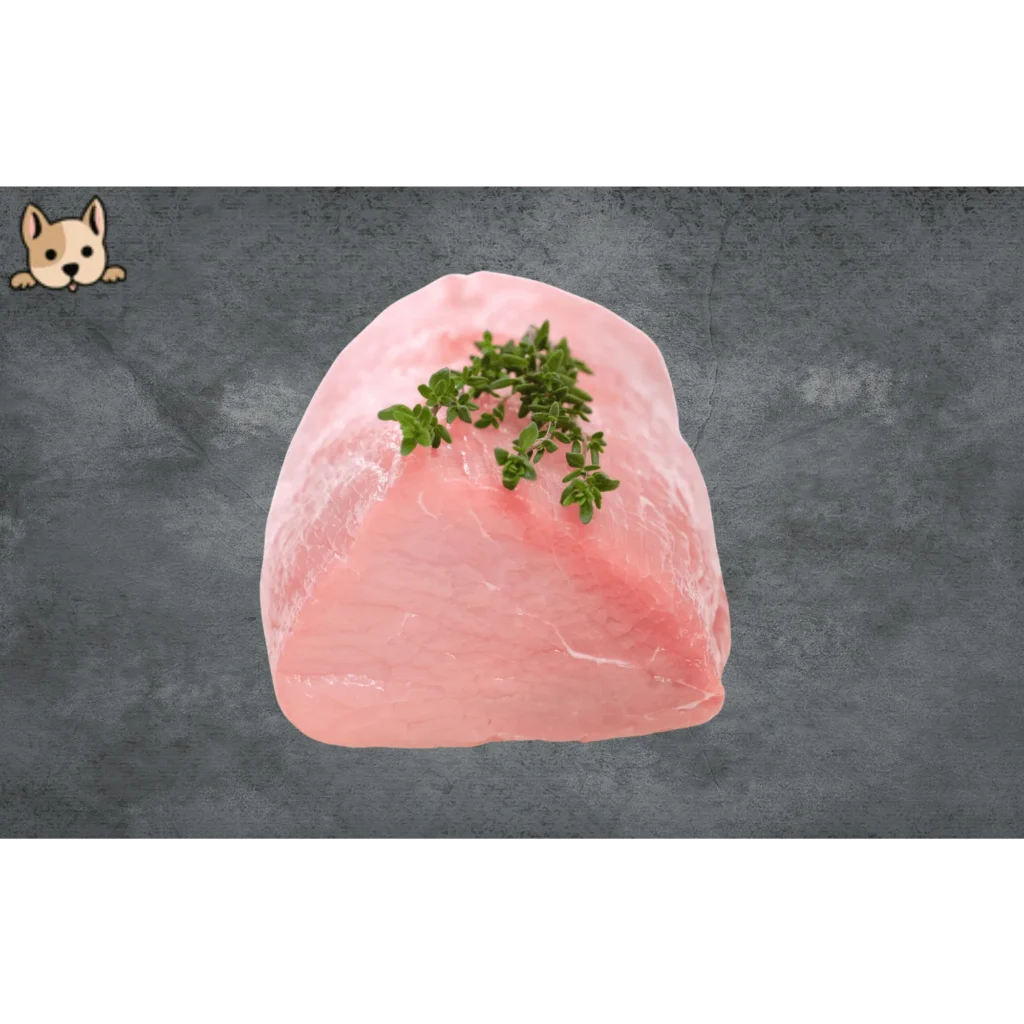
While veal can be a nutritious addition to a dog’s diet when fed in moderation and prepared properly, it’s important to note that individual dogs may have different dietary needs and sensitivities. Here are some potential health benefits of veal for dogs:
1. High-Quality Protein Source:
The high-quality protein in veal supports optimal muscle development and maintenance. This is particularly important for active dogs, growing puppies, and those recovering from illness or injury.
Veal protein is highly digestible and bioavailable for dogs, meaning their bodies can efficiently absorb and utilize the nutrients. This enhances the dog’s ability to derive maximum nutritional benefit from the protein content in veal.
Proteins serve as an energy source for dogs. The sustained energy from veal protein can help active dogs maintain their stamina and support an active lifestyle.
2. Amino Acids:
Veal provides a complete array of essential amino acids that dogs need for various physiological functions. These amino acids are essential for building and repairing tissues, supporting the immune system, and maintaining overall health.
Amino acids are involved in the production of energy for the body. They contribute to the synthesis of enzymes and hormones that regulate metabolic processes, helping to ensure that dogs have the energy they need for daily activities.
Amino acids play a role in maintaining the health of organs such as the heart, liver, and kidneys. They contribute to the synthesis of proteins that are crucial for the proper functioning of these vital organs.
3. Nutrient Content:
The nutrient content in veal offers several health benefits for dogs, contributing to their overall well-being. B vitamins are involved in various metabolic processes, including energy production, enzyme function, and the maintenance of a healthy coat and skin. Veal provides these essential B vitamins for overall canine health.
Iron is vital for making red blood cells, which carry oxygen in the body. Getting enough iron from veal can help support your dog’s energy levels and overall vitality. Additionally, phosphorus is essential for bone health, proper kidney function, and the efficient use of nutrients. Including veal in your dog’s diet can contribute to their well-being by providing these important nutrients.
4. Supports Skin and Coat Health:
Zinc, found in veal, is particularly beneficial for skin health. It supports the production of collagen and aids in wound healing. Adequate zinc intake contributes to the prevention of skin issues and promotes a healthy coat.
B vitamins, such as B12, niacin, and riboflavin, found in veal, contribute to coat shine and texture. They play a role in maintaining healthy skin, preventing dryness, and supporting the natural luster of a dog’s coat.
5. Lean Option:
Veal tends to be lower in fat compared to some other meats, making it a suitable option for dogs that require a leaner diet. Low-fat options are essential for dogs with weight management concerns or those prone to pancreatitis.
The lean nature of veal can contribute to weight management in dogs. It allows pet owners to provide a protein-rich diet without the excess calories from fat, helping to maintain a healthy body weight.
Potential Risks of Feeding Veal to Dogs:
One potential drawback of feeding veal to your dog is the risk of allergies, especially if your dog is allergic to certain meat proteins. Beef, including veal, is known to be a common allergen for dogs. Signs of food allergies typically manifest as skin or gastrointestinal issues, such as increased itching, skin rashes, vomiting, or diarrhea.
If you observe any of these signs in your dog, it’s advisable to consult with your veterinarian promptly to address concerns and determine an appropriate course of action. Your vet can guide managing food allergies and adjusting your dog’s diet accordingly.
Can Dogs Have Cooked Veal?
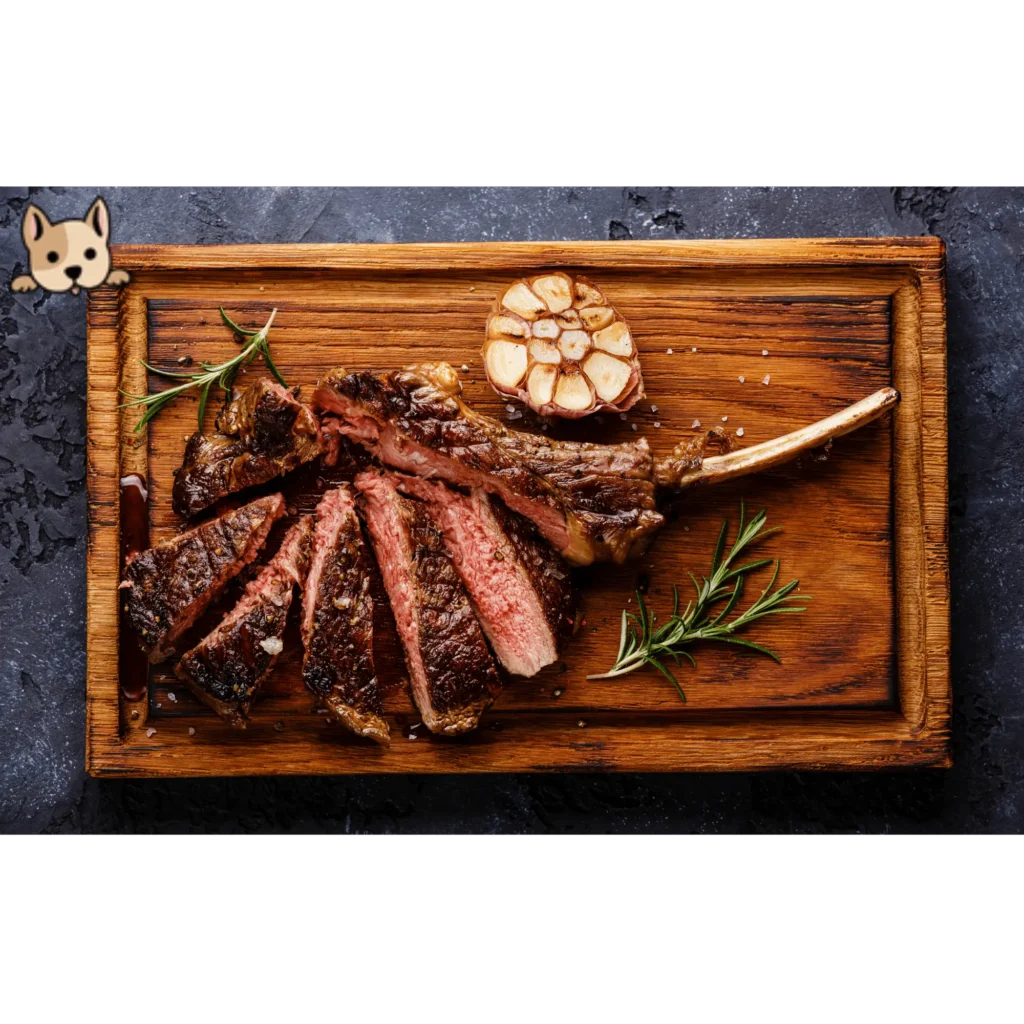
Dogs can safely consume cooked veal, and it’s generally recommended to provide them with cooked meat to eliminate any potential toxins or parasites that may be present. When it comes to raw meat, it’s essential to be certain about the source and vouch for its hygiene before considering it for your dog’s diet.
While a dog’s digestive system is naturally adapted to raw meat, the risk of contamination with salmonellosis is a concern. As a precaution, opting for cooked or boiled meat is often considered a safer choice to ensure your dog’s well-being.
Can Dogs Eat Veal Bones?
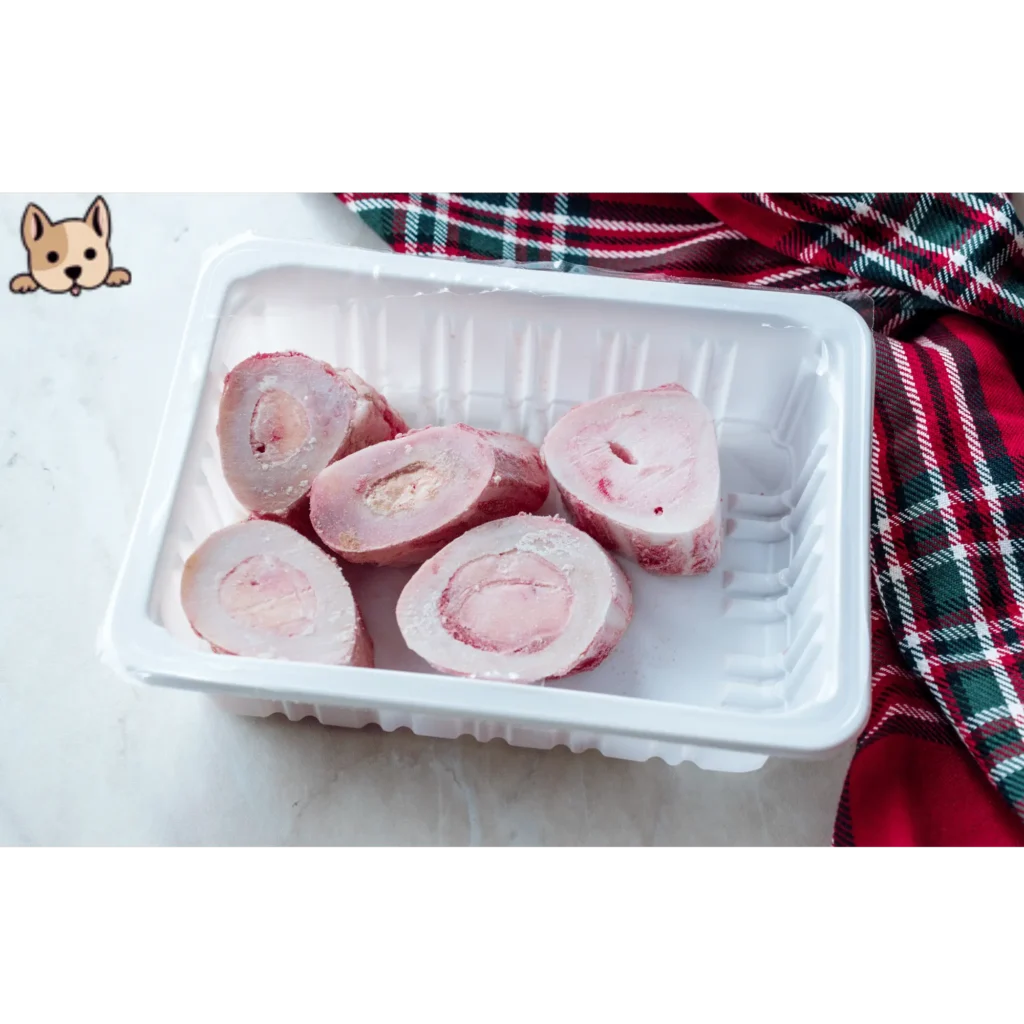
The answer to whether dogs can have veal bones is a bit complicated. Dogs can safely consume raw veal bones, but it is not recommended to give them cooked veal bones.
Cooked bones tend to break into smaller shards, posing a risk of injury to a dog’s mouth or throat and, in more severe cases, leading to choking. If a cooked bone becomes lodged in the intestines, it can cause significant damage to the organ. Additionally, the cooking process removes most of the nutritional value from the bones.
Therefore, it’s advised to avoid giving your dog cooked veal bones. However, sharing raw bones with your dog can be a safer option, providing them with a natural and beneficial chewing activity.
How Much Veal Should You Incorporate into Your Dog’s Diet?
Your dog’s nutritional requirements depend on various factors, such as their level of exercise, metabolic rate, breed, age, and other individual characteristics. To ensure your dog stays healthy, it is essential to provide them with a complete and balanced diet that meets all their nutritional needs.
Veal is not a common ingredient in commercial dog foods. If you choose to incorporate veal into your dog’s diet, it can be given as a treat or a tasty topper on their regular food. However, it should not exceed 10% of your dog’s daily food allowance.
If you are preparing your dog’s meals at home, including veal, it’s advisable to seek guidance from a veterinary nutritionist. They can help formulate a meal plan with the right combination of ingredients and supplements to ensure your dog receives all the necessary nutrients. Monitoring your dog closely and adjusting their food intake as needed is crucial for maintaining a healthy weight.
What are the Alternatives to Veal for Your Dogs?
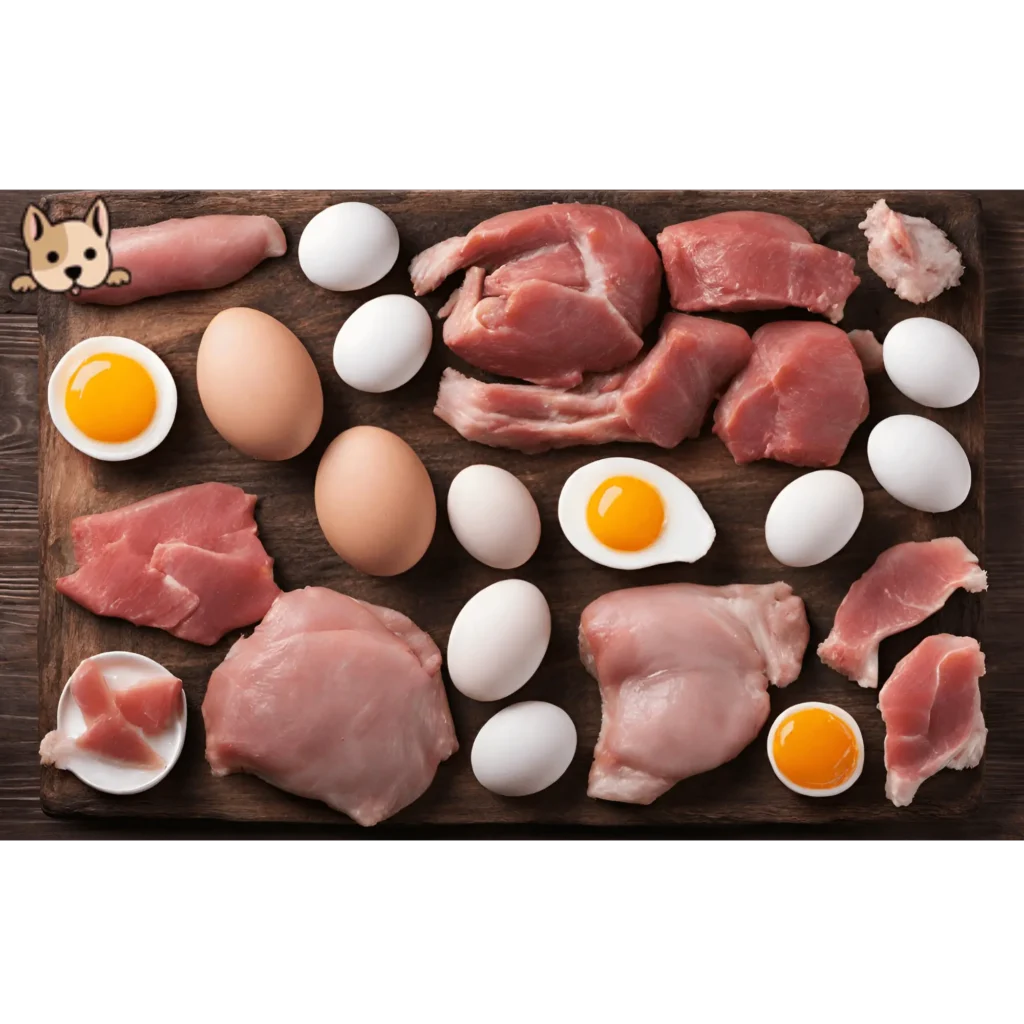
Veal is not commonly recommended as a primary protein source for dogs due to ethical and nutritional concerns. Additionally, veal can be high in fat and may not provide the necessary nutrients for a balanced canine diet. It’s generally better to choose leaner and more nutritionally beneficial protein sources for dogs.
Here are some other protein options your dog might like:
1. Chicken:
Chicken is a popular and readily available protein source for dogs. It’s lean and provides essential amino acids.
2. Turkey:
Similar to chicken, turkey is a lean protein source that can be a healthy addition to your dog’s diet. It provides essential nutrients such as protein and can be included in various forms, such as cooked and shredded meat or as part of a balanced homemade dog meal.
3. Beef:
Lean cuts of beef can be a good source of protein for dogs. However, avoid fatty cuts and ensure that the beef is cooked to avoid any potential health risks.
4. Fish:
Fish, such as salmon, is rich in omega-3 fatty acids, which are beneficial for your dog’s skin and coat health. Just be cautious about bones and choose boneless fish.
5. Eggs:
Eggs are a highly nutritious food for dogs. They are an excellent source of protein and contain essential amino acids, making them a valuable addition to your dog’s diet. Eggs can be cooked and added to your dog’s meals as a tasty and protein-rich supplement.
6. Lamb:
Lean cuts of lamb can be a beneficial protein source for dogs, but it’s essential to be cautious about the fat content. Although dogs need healthy fats in their diet, too much fat can result in digestive issues and contribute to obesity.
7. Pork:
Lean cuts of pork can be fed to dogs in moderation, but be cautious of the fat content and avoid seasoning or cooking methods that may be harmful to dogs.
8. Duck:
Duck can be a palatable protein source that some dogs enjoy. However, it’s crucial to be mindful of the fat content in duck, as it can be higher than in some other meats. Before serving duck to your dog, it’s important to remove excess fat to avoid potential digestive issues and prevent an overload of unhealthy fats.
Conclusion:
In summary, veal can be a safe and nutritious addition to your dog’s diet, offering high-quality protein and essential nutrients. However, it’s crucial to introduce it in moderation, consider individual dietary needs, and consult with your veterinarian. Ensure proper preparation, including cooking and bone removal, and be mindful of potential allergies.
While calf meat provides benefits such as muscle development and skin health, it’s essential to use it as a treat or occasional topper rather than a primary protein source. If veal isn’t suitable, there are alternative protein sources available. Prioritize your dog’s well-being by maintaining a balanced diet and consulting with your vet for personalized dietary recommendations.
FAQs:
1: Can I give my dog raw veal?
Feeding raw veal comes with risks like bacterial contamination and potential parasites. While some opt for a raw diet, it’s crucial to consider your dog’s health, potential nutritional imbalances, and individual needs. Consult with your veterinarian before introducing raw veal to ensure your dog’s safety and well-being.
2: Can dogs eat lamb or veal?
Yes, dogs can eat lean, well-cooked lamb or veal in moderation. Remove bones to prevent choking hazards, and introduce these meats gradually. Consult your vet for guidance, especially if your dog has dietary restrictions or health concerns.
3: Can dogs eat veal liver?
Yes, dogs can safely eat veal liver. It is rich in vitamins that help cleanse the blood, boost vision, and contribute to healthy skin and coat. The liver contains essential fatty acids, iron, copper, and zinc. Ensure moderation, and consult your vet if needed.
4: Can dogs eat veal cutlets?
Yes, dogs can eat veal cutlets, but be cautious about seasonings. Plain, cooked lean veal is a safe option. Dogs’ preferences may vary, so observe your dog’s response to different forms of veal. Avoid excessive sodium.
5: Should I boil veal for my dog?
Yes, boil the veal before giving it to your dog. While veal is often free of parasites, boiling ensures any potential contamination is eliminated. Dogs have acidic stomachs that can handle some contamination, but it’s best to be cautious.


